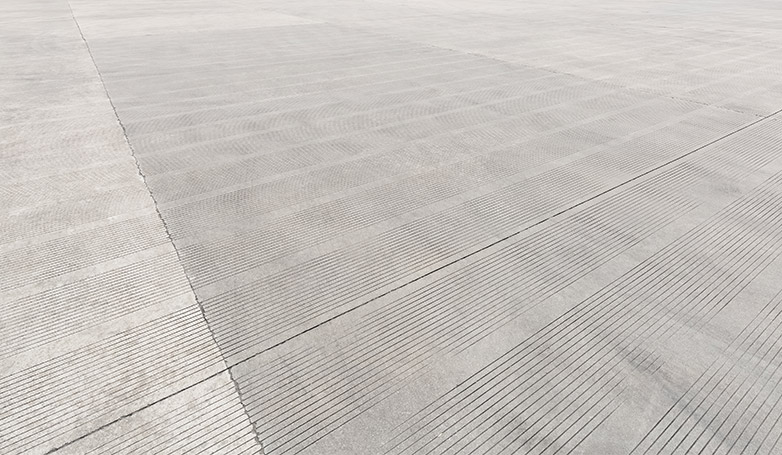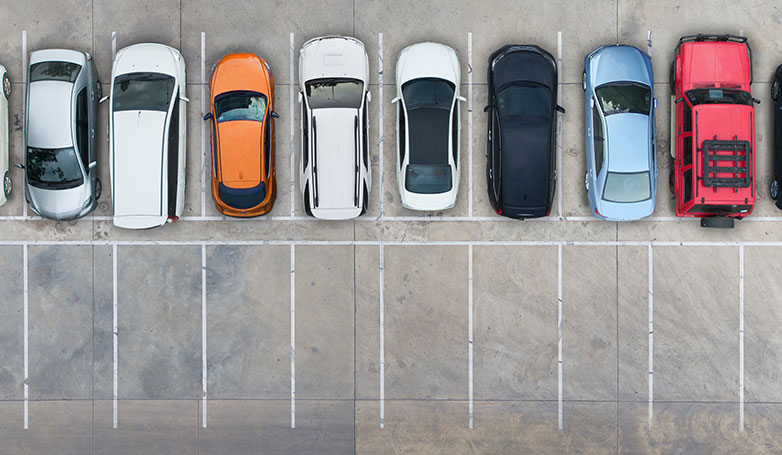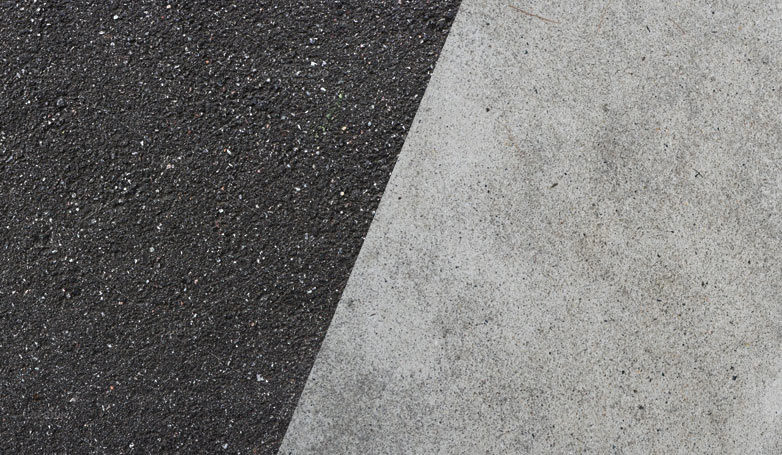Concrete Parking Lot − 5 Benefits That Help Your Business
Considering a concrete parking lot is the right decision for your business because it can withstand extreme environmental exposure and significant vehicular loads. Today over 80% of driveways are paved with asphalt. However, its rising prices and ability to deteriorate fast have made concrete the best alternative.
A concrete parking lot is the first step toward creating a positive impression on potential customers. Parking lots undoubtedly receive a great deal of vehicle and foot traffic, which could cause your parking lot to wear out easily. You need a parking space with low starting costs and minimal maintenance. Concrete parking lots offer low maintenance costs, multiple colors, and texture design options. It’s the best choice if you’re considering cost and aesthetic appeal.
However, there are many reasons concrete can demonstrate its superiority to asphalt and other paving options. It can provide significant cost savings, reduce the amount of energy required to cool buildings, and improve safety. In this article, we explain all you need to know about concrete parking lot as a business owner.
The Benefits of a Concrete Parking Lot for your Business
An excellent parking lot can help your business run efficiently. Your parking lot is the first impression your building gives to your employees or clients. It tells to an extent what they should expect within the building. Concrete helps many business owners design a durable parking lot that can withstand pressure, and the aesthetic is appealing enough to draw more clients. The following are the benefits of concrete parking space for your business:
Low Maintenance
Concrete requires low maintenance without much work; to maintain its beauty, you must remove debris and debt from the surface. It is the best option for your business if you are always busy and have little time to take care of your parking lots.
It Is Eco Friendly
Concrete is recyclable and causes zero harm to the environment. It requires less machinery to keep your parking lot healthy and safe, and most concrete mixes are made from natural and chemical-free materials.
Durability
Concrete parking lots are more robust and durable; you do not need so much money to fix or maintain your parking lots. Under the weight of traffic and heavy vehicles, your concrete parking space will still maintain its integrity.

Concrete Reflects Light At Night
To improve the safety and security of your employees, lighting up your parking lot is significant. Concrete reflects light at night and helps you save money on energy over a long time.
Aesthetically Pleasing
Concrete comes in several color schemes, including white, gray, brick red, and brick brown, which can appeal to your taste. It can be constructed with textured and colored patterns to suit your business brand.
How Thick Should Concrete Parking Lots Be?
The American Concrete Institute’s ACI 330: contains the guide for constructing concrete parking lot. The guide contains the exact inches you need which will vary based on certain factors.
- The size of the aggregate mixture,
- The type of the component (beams, slabs, reinforcement),
- The fire resistance standard, soil condition,
- The driveway function,
- Your budget.
Also, the strength of your concrete will affect its thickness. Stronger concrete can be a few inches thinner because it can withstand more pressure than weaker concrete.
Therefore, your parking lot concrete must be at least 6 to 12 inches thick based on the anticipated load and subbase strength. Concrete constructors usually use 6 inches for parking lots that would face a lot of traffic pressure. For seasonal parking lots, 4 inches thick is perfect for your concrete pavement.
Concrete parking lot cost
The price for a concrete driveway or parking lot breaks down to about 4 to 6 dollars per square foot. This price includes the cost of labor and the materials needed to install the concrete. Factors like; location, distance, traffic, size of the parking lot, the scope of work, and lightning requirements may affect the price of your concrete parking space.

Concrete parking lot maintenance
Concrete parking lots are known to last the test of time; however, as you continue to drive or walk on them, they will start to deteriorate and reveal their age. A proper maintenance routine will help improve its lifespan.
Below are a few steps that will maintain your parking lot and preserve its life.
Cleaning
Concrete parking lots will require some regular maintenance. A large push brush assists in removing debris from the surface and keeping it clean for a long time. Power washing is another alternative for cleaning your parking lot. Before washing your concrete driveway, ensure your drainage system is effective and in good condition.
Fill Up Crack
Aside from being aesthetically unappealing, cracks and potholes disturb your parking experience. Once your concrete driveway is cracked, ensure you fill it up to avoid crack expansion. Concrete repairs and filling up the surface are always advisable if you want to improve the performance and lifespan of your parking lot.
Remove Stains From your Concrete Parking Lot
Oil stains are a common problem with parking lots that are always busy or used. Removing these stains will prevent them from sticking to the floor and messing with the aesthetic of your parking lot. Stain removal will help clear every stain without destroying or scaring some parts of your concrete. Removing stains from your pavement is an integral part of maintenance and should be carefully done.

More Like This:
- Resurfacing Concrete Parking Lot
- Concrete Parking Stops Installation
- Alternatives to Concrete Driveway
Concrete parking lot repair
Next to maintaining your parking lot, concrete parking lot repair helps to preserve the lifespan of your concrete pavement. This is because your business parking lot can suffer cracks when heavy trucks or vehicles are always parked on it or suffer from potholes, flakes, salt damage, or other extreme weather conditions. Follow these easy steps for your concrete parking lot repair:
Identify The Source Of Damage
Before you can repair the damage on your parking lot, you must identify the course of the damage and decide the method of repair that will best suit your pavement. For example:
- if your business parking lot is cracked, a bonding adhesive will help you fix every track and keep them a staple for a long time.
- if your driveway has many shifted sections, you can invite a contractor to grind down the high side.
Knowing the exact cause of the damage will save you time and money.
Surface Preparation
Preparing the concrete surface is the first step to fixing any substantial damage. Remove any shaky concrete, debris, or shattered parts from the surface. You must ensure that all parts of your parking lots are free from dirt, clean, and ready for repair.
Fix Cracks, Potholes, or Flakes.
If your concrete driveway or parking lot is cracked, broken, or has many potholes or flakes, consider fixing them using the correct repair method. You can also decide to do your repairs yourself or contact a concrete constructor to help you handle the job.
Some good repair techniques include:
- Leveling
- Concrete crack repair and patching
- Joint sealing
- Cutting and sectional repair
- Overlay and slap restoration
- Epoxy injections and
- Complete replacement
Replace Your Parking Lot
After evaluating the cause of your damage, you will have to decide between fixing or replacing your parking lot pavement. Sometimes, fixing alone won’t do the work of keeping it together and preserving its lifespan. Replacing your pavement, especially when it has served you for a long time, is the best thing to do. Replacing your concrete pavement will keep you in business and reduce your stress, worry, and complaints.

Related Articles:
Concrete vs. asphalt
For years concrete and asphalt parking lots have been compared with each other; because they are the two essential pavement materials. Homeowners and businesses always struggle to decide between concrete and asphalt parking lots; pavement materials have a gravel base and many similarities. However, they still have a distinctive difference that gives concrete paving a substantial advantage over asphalt parking lots.
Lifespan and Durability
When compared to concrete, asphalt parking lots are less durable. With regular maintenance, asphalt lifespan can be preserved and protected from damage. However, a concrete driveway can last up to 50 years or more.
Maintenance and Repair
Concrete is less challenging to maintain and preserve. With early maintenance plans, your concrete business parking lot will remain decent for a long time. Remember that asphalt repair is more expensive and hard to carry out than concrete.
Concrete Vs. Asphalt Parking Lot Aesthetic
It’s easier to be creative with the concrete pavement; you can stain, tint or design concrete to give you the desired effect. Concrete finishing provides different colors or hues to its natural color. While asphalt is easy to install, it must be filled and compressed, and the result is usually black.
Cost and Price Difference
The cost of installing asphalt pavement is always cheaper than concrete. It usually costs 2 to 4 dollars to install asphalt pavement and 4$ to 6$ per square foot for concrete.
Conclusion
If you are looking for a good driveway or parking lot that can withstand pressure, you should look towards concrete parking lots. When used for homes or business parking lots, they are more durable, flexible, and require less maintenance.


